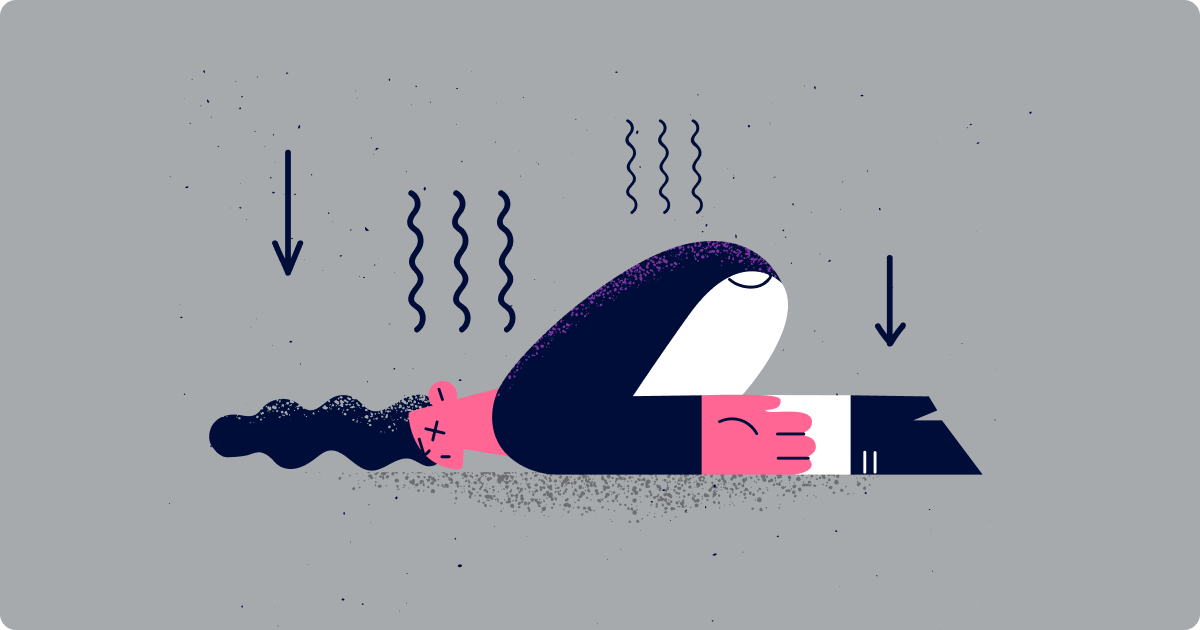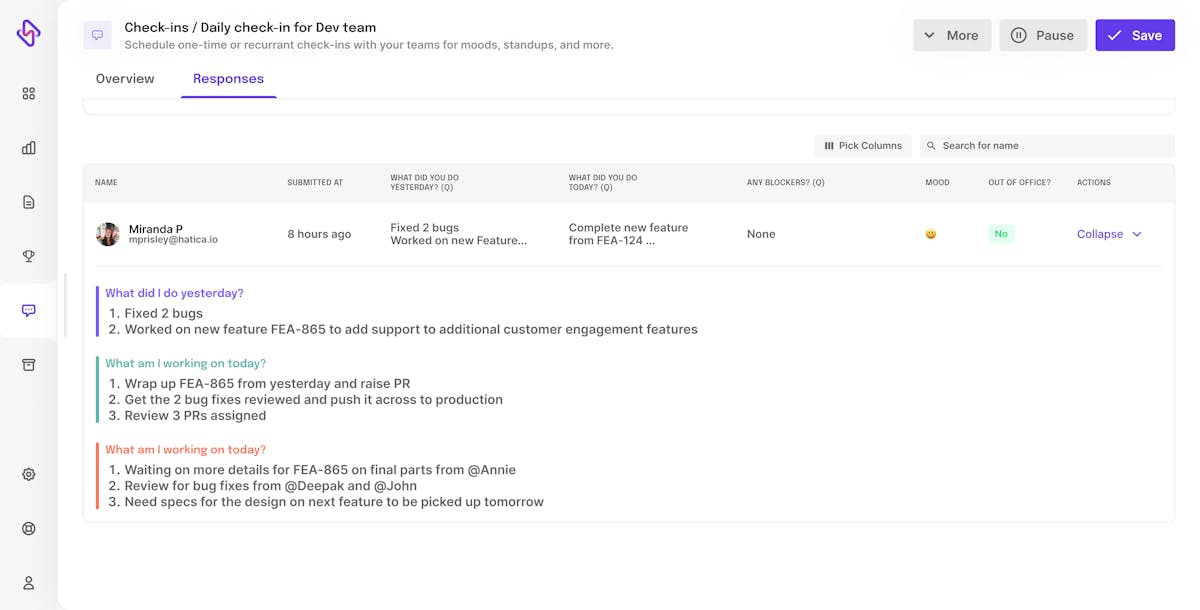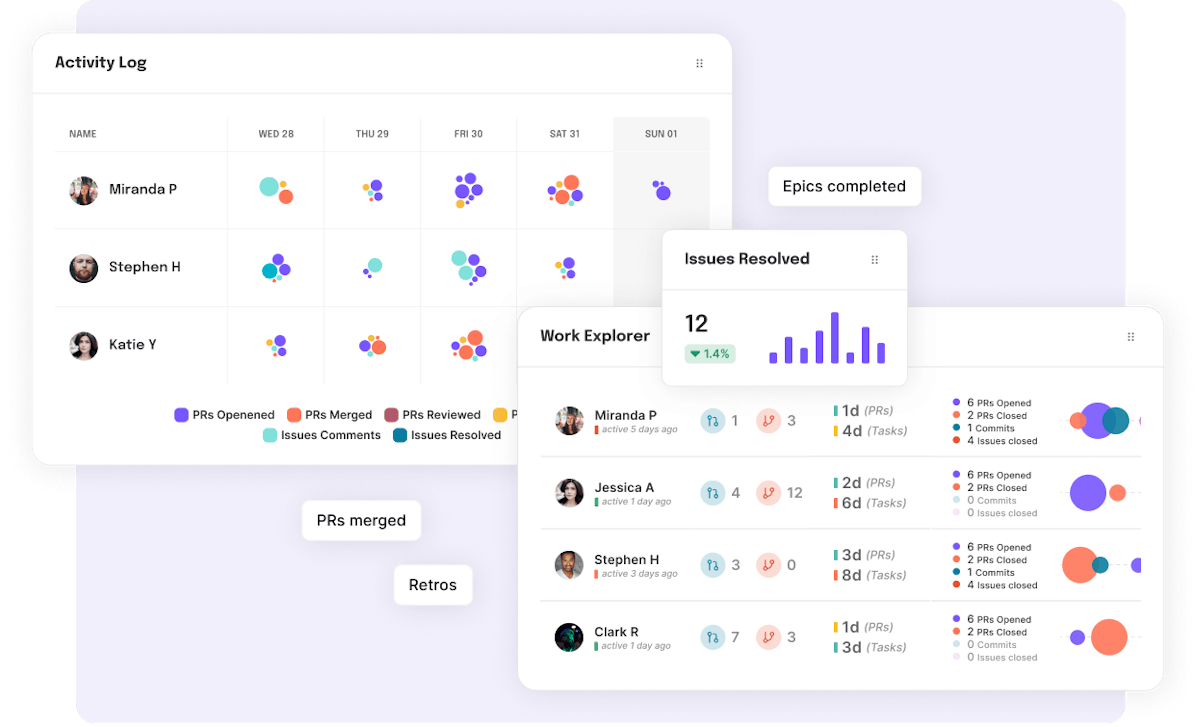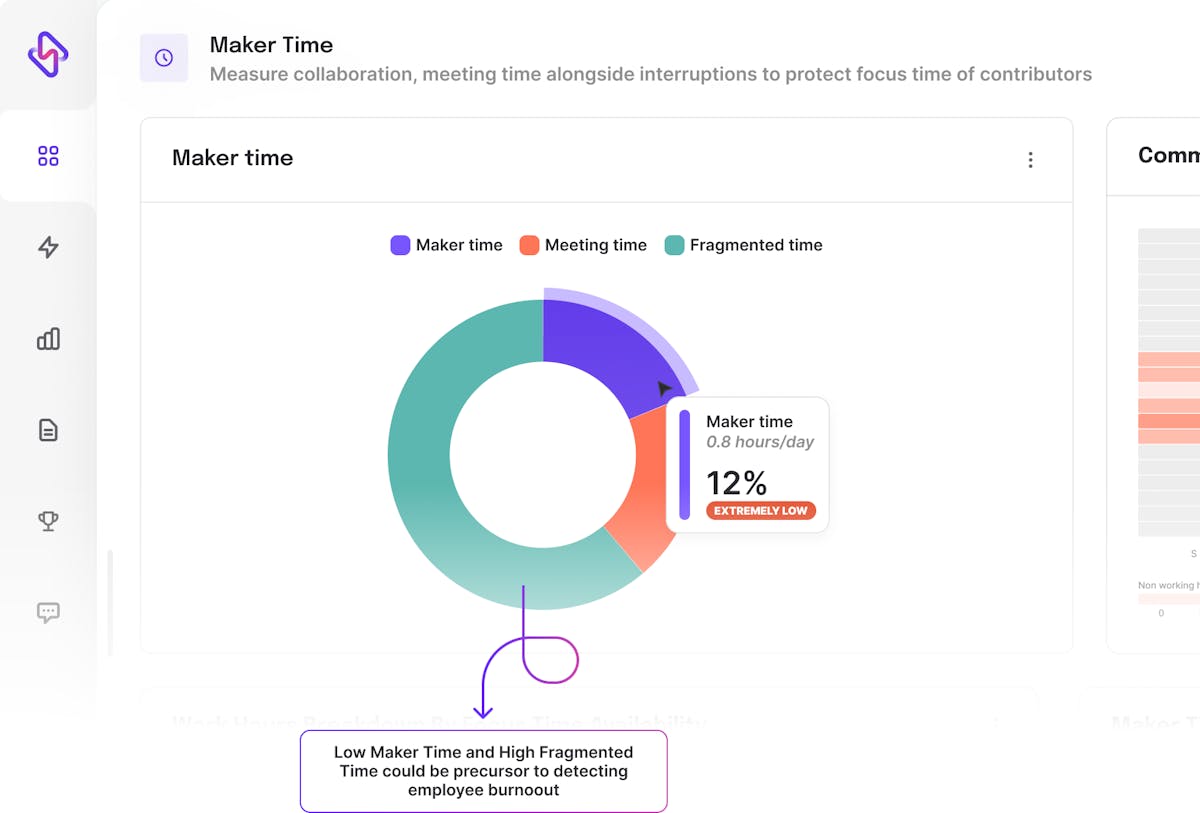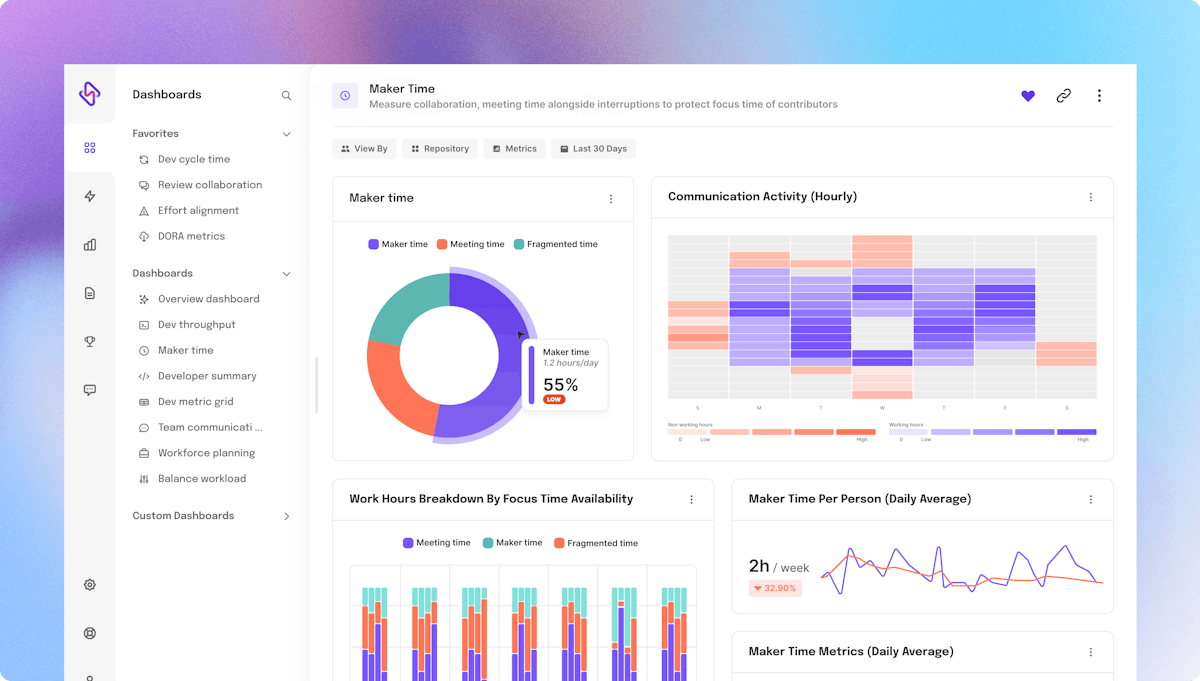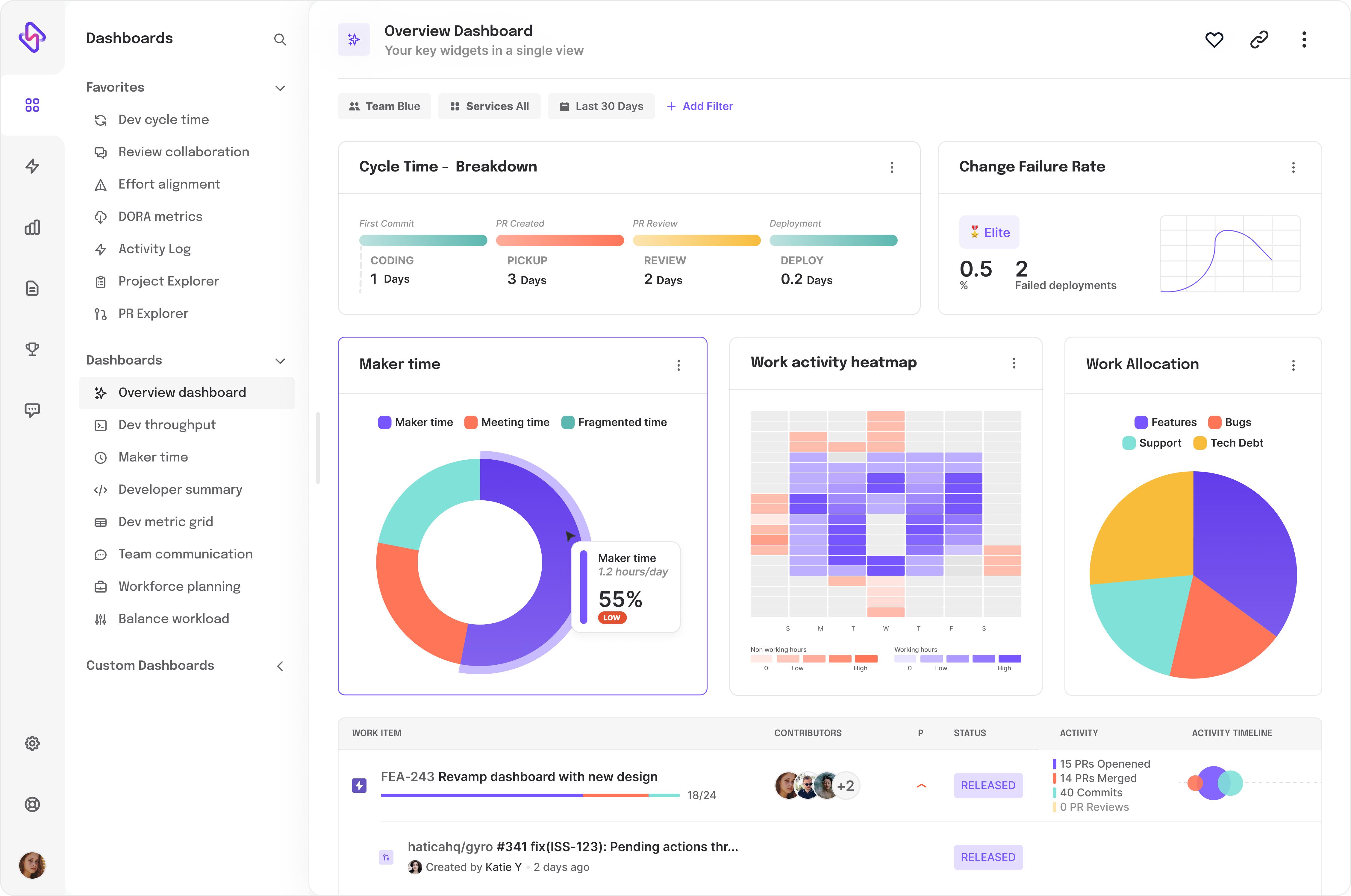What is Software Engineers’ Burnout?
Software engineers experience burnout due to demanding and high-pressure work, leading to physical and emotional exhaustion.
Project deadlines, code burst, ad-hoc requirements, bugs and errors,… these are regular occurrences in a software engineer’s life. Which engineer has not had tech debt concerns or pressing deadline and workload pressures sometimes? But when the pressure is relentless, pushing developers into constant stress, exhaustion, and inefficacy, we call this state as burnout in software engineers. Burnout is the feeling of being constantly exhausted and demotivated at work. The WHO defines burnout as - “A syndrome conceptualized as resulting from chronic workplace stress that has not been successfully managed."
Burnout is a serious concern for dev team managers and leaders because the affliction affects not only individual developers’ performance and well-being but also cascades into hurting the productivity of the team and the organization. The impact of burnout is obvious in the software development sector, as elucidated by this Team Blind survey that found 60% of software workers reporting symptome of burnout in the workplace.
However, developers, dev team managers and leaders can manage the stress that causes burnout and achieve sustainable productivity by acknowledging the symptoms of burnout, addressing process pitfalls that cause burnout, and developing pre-emptive strategies to counteract the problem.
History of Burnout in Software Engineering
Burnout has existed ever since the invention of work, though it was unknown until it was first coined by the American psychologist Herbert Freudenberger in the 1970s. He used it to describe the consequences of severe stress and high ideals in “helping” professions, such as doctors and nurses. The term slowly began making rounds in every industry that the World Health Organization has included in the 11th Revision of the International Classification of Diseases (ICD-11) as an occupational phenomenon.
Burnout has always existed in fluctuating patterns, but this could be the first time the numbers have hit a staggering high. In a survey conducted by Deloitte, 77% of the 1000 respondents claim that they have/are experiencing burnout in their current job. 91% of respondents state that burnout impacts the quality of their work and a hefty 83% admit that it goes beyond the office and into their personal lives.
Again, the software industry being one of the largest, feels the repercussions of burnout firsthand. According to a report by Evans Data Corporation, there are about 23.4 million software engineers in the US alone, and another study shows about 83% of developers report suffering from burnout. Drawing a correlation between the two statistics gives us an astounding number of developers who could potentially be experiencing burnout.
Effects of Software Engineer Burnout
Burnout can have serious effects not only for individuals but also for organizations. The impact can be distinct in a variety of areas, including:
- Depression: Software engineer burnout can cause depression, and anxiety due to difficult tasks, tight schedules, and heavy responsibilities. It can lead to mood swings, worry, and detachment.
- Lack of Productivity: Burnout in software engineers can lead to decreased productivity, creativity, and efficiency, causing a cycle of diminishing output and self-confidence.
- Illnesses: Burnout not only affects mental health but also weakens the immune system, causing physical health issues such as frequent headaches, compromised sleep, and increased susceptibility to common illnesses for software engineers.
- Deadlines: The fatigue from burnout can affect time management and task priority in software engineering, leading to missed deadlines, stress, and negative team dynamics.
- Quality of Project: Burnout can affect software engineers' work quality, causing coding errors, oversight of critical components, and decreased problem-solving capabilities. It may lead to software products that do not meet expectations, compromising functionality and user satisfaction.
5 Reasons for Software Engineer Burnout
Software development teams have always worked under tremendous pressure and scrutiny. This high-pressure environment, combined with new developments such as the global shift to remote and hybrid work and the resulting mis-adoption of remote work practices, compounded the causes of burnout.
While it is easy to assume excessive workloads as the primary reason for software engineers’ burnout, it is not the only culprit on the list. Various other factors cause burnout in engineers. Below is a list of the factors that cause burnout in engineers, in no particular order:
1. Scope Creep
Dev teams work against serious deadlines, often aiming to push feature releases within ambitious time frames. In such scenarios, when the scope of a project continues to vary due to either changing client requirements or incomplete PRDs or even misunderstood requirements, it leads to back-and-forth reviews, rework, and a loss in productivity. A repetitive race to complete the project in the context of this pressure can stress engineering teams and lead to burnout especially when dealing with scope creep.
How to Manage Scope Creep?
Hosting regular stand-up meetings can help team members provide a realistic and achievable timeline of their deliverables while also discussing blockers and challenges that can be fixed by the team to ensure deadlines are met.

